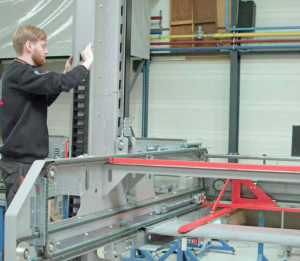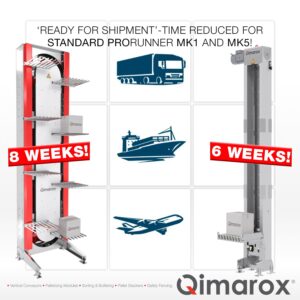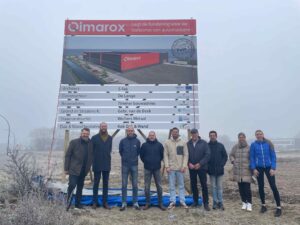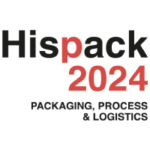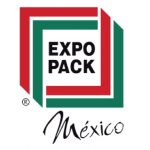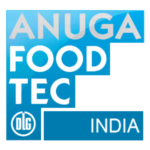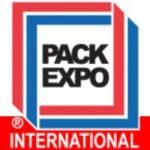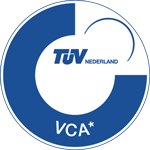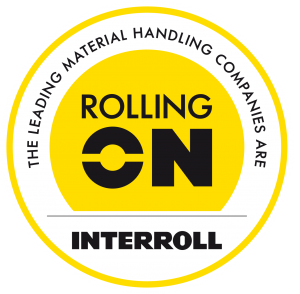Companies no longer must manually stack and transport endless boxes internally. Qimarox from Harderwijk develops and produces automatic palletisers and vertical conveyors to take that heavy lifting work off your hands. The multi-purpose systems are standardised and modular, so that they can be used to transport and stack boxes automatically. Qimarox is now active worldwide.
Text and photos: John Ekkelboom
Source: Metaal & Techniek
Na binnenkomst in het gebouw van Qimarox in Harderwijk laat directeur Martijn Smit meteen zien dat op de eerste etage het kantoor recent fors is uitgebreid en gemoderniseerd. De vele glazen wanden geven een kijkje in de kantoorruimten en bieden ook zicht op de werkvloer beneden. Daar zijn werknemers druk bezig met het assembleren en testen van palletiseermachines en verticaal transporteurs. De uitbreiding van het kantoor was nodig vanwege de groei van het bedrijf en daarmee ook van het aantal werknemers, legt Smit uit. `We hebben nu ruim tachtig mensen in dienst. Onze producten gaan de hele wereld over. Dagelijks komen hier meerdere nieuwe aanvragen binnen. Om de klanten goed te kunnen bedienen, hebben we nu native speakers in huis voor Spaans, Engels, Frans, Duits, Turks, Italiaans, Hindi en uiteraard Nederlands. Sinds deze extra service groeien we nog sneller.’
Qimarox is in 2012 ontstaan als afsplitsing van het bedrijf Nedpack, dat op hetzelfde terrein in Harderwijk is gevestigd. Pieter Hannessen, die in 1995 Nedpack oprichtte, wilde verder groeien op het gebied van palletiseermachines en verticaal transporteurs. Om dat te bereiken, besloot hij om de engineering en de productie van de componenten voor deze transportsystemen in een apart bedrijf onder te brengen. Daarmee was Qimarox geboren. Nedpack richt zich nu vooral op revisies en onderhoud bij de eindklanten en fungeert tevens als opleidingscentrum voor de medewerkers van Qimarox. De componentendivisie heeft ook een ondersteuningspunt in de Verenigde Staten, waar veel grote klanten zitten zoals Amazon, Procter & Gamble, Nike en Tesla.
System integrators
Smit says that Nedpack and subsequently Qimarox were in fact taught by the end customers. ‘They provide us with internal problems with automatic transport and stacking of boxes, which we then solve for them. For example, we have learned a lot from those American companies, but also from companies in Europe such as Nestlé, Friesland Campina, Xerox, Danone, Bol.com, Haribo, Refresco, Farm Frites and Aviko. Partly thanks to them, others and, of course, our engineers, we now have a wonderful range of special key components and the number of patents has grown to a few dozen.’ The director explains that the end customers are not Qimarox’s direct clients. ‘We have a worldwide network of more than five hundred system integrators. They install and integrate our components on site and have a lot of experience in doing so. For the end customer it is also convenient to have such a reliable company nearby. End users can of course always contact us for information and advice about our components.’
The system integrators can choose from three main products at Qimarox. For example, the company makes two types of vertical conveyors, namely product and pallet lifts. The third group consists of palletisers. These grab boxes and stack them on pallets so that they are ready for transport by truck, boat and/or plane. If desired, these three different products can be linked together in various ways. It is a fully modular system so that it is possible to provide a solution for every internal logistics problem. According to Smit, the showpiece of Qimarox is the mk5, a fast product lift up to 25 metres high. ‘We go to several fairs a year and we always have one of them with us. We also have the mk1 – also a product lift but with a lower capacity – and the pallet lifts mk9 and mk10. In terms of palletisers, we have the Highrunner HR7 and the Lowrunners LR1 and LR3’.
Perfect positioning
Automatically transporting and stacking boxes on pallets is quite complex, says Smit. ‘You of course don’t want to damage the products. That’s why it’s important that palletisers position the products perfectly. Ours can do that 100% accurately and therefore better than robots and other palletising systems. We do not stop the boxes with stop flaps or on a time basis, as all other palletisers do, but slide them to the exact position. Our measuring system controls this entire process. Because we have standardized everything, our machines are relatively cheap. Capacities range from 500 to 3,500 boxes per hour. Moreover, they have a narrow footprint, so that they take up as little space as possible.’
The company in Harderwijk strives to deliver the components not only at an attractive price but also as quickly as possible. This service is especially important because there is only one production location, namely Harderwijk. As a result, foreign orders entail a lot of transport time by truck, ship or aeroplane. A few months ago, Qimarox therefore set up its so-called ‘Fast Lane Service’. For the time being, this will be limited to the mk1, but if successful, Qimarox will extend this service to the other products, Smit promises. ‘This is only possible if you standardise and optimise logistics. We’ve now done that for the mk1. There is no longer any engineering involved. The system integrator only needs to fill in a request for quotation. We look at the configuration and then make an offer. Once we receive the order, we get to work. Because the standard components are in stock, we can limit the delivery time to a maximum of two weeks. We aim to further reduce that time to a week in the future.’
Easy maintenance
Qimarox outsources the production of the parts, but the company also wants to do this partly itself in the context of further growth. This year, the company grew by about 30%. Smit wants to continue this trend to eventually become one of the largest players on the world market. ‘This is only the beginning. We want to sell our products all over the world. Tomorrow I will leave for the CeMAT Asia logistics trade fair in Shanghai. In China, we already supply machines for, for example, the internet company Alibaba. There is still a lot of growth potential in that country. I’ll now be talking to system integrators there, and next year we’ll be on that fair ourselves.’ Smit believes that steady growth is possible in distant countries. ‘Especially because our machines are relatively simple to maintain. In the future, for example, we could have someone do minor repairs on the spot via VR glasses. We supply all our palletisers with certain software and cameras, so that we can log in and monitor them worldwide. The only problem we are currently facing is that our current premises are becoming too small again. That is why we have plans to expand considerably somewhere within Harderwijk.’

